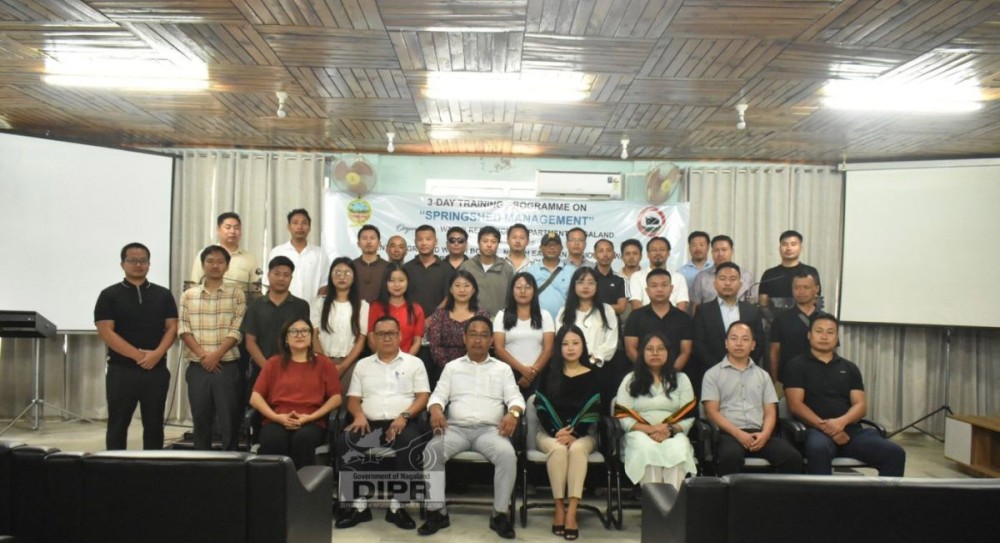Officials and others during the inaugural of the three-day training programme on ‘Springshed Management’ at the Chief Engineer’s Office Conference Hall in Kohima on July 15. (DIPR Photo)

Kohima, July 15 (MExN): The Northern and the North-eastern part of India so-called the Himalayan states dependency on water basically lies on springs water and glaciers for all domestic, livestock, and agriculture purposes.
“Our state (Nagaland) too, the main water sector is from spring sources and the surface water such as the streams and rivers from these springs are used directly or indirectly for irrigations,” Additional Chief Engineer, Water Resources Department, Er Sobu Angami informed on Tuesday.
However, he pointed out, “Over the years, the sources of spring water are depleting year by year due to exploitation, increase in population, land use, climate change, unplanned development activities and several other factors.”
He was addressing the inaugural programme of the three-day training programme on ‘Springshed Management’, organised by the Nagaland Water Resources Department in collaboration with the Central Ground Water Board (CGWB), North Eastern Region, Guwahati, under the Ministry of Jal Shakti, Government of India, at the Chief Engineer’s Office Conference Hall in Kohima on July 15.
Briefing on the importance and necessities on Springshed Management, Er Sobu Angami stated we need to come forward for the revival of the springs and urged the need to be undertaken at the government policy level and field implementation level at the earliest, stated a DIPR report.
He also stated that the government is now focusing on the importance of the springs and conducting spring census, irrigation census and water bodies census and with the Brahmaputra Board implementing a number of Springshed Management schemes in the North-eastern states, he emphasize that the Water Resources Department take up Springshed Management programme as it is a dormant subject of the department but notified that such programmes come under a technical subject.
He, therefore, called upon the participants to take a thorough study about the kind of intervention required and gain knowledge from the resources persons during the three-day training so as to implement Springshed Management Projects in all the districts.
The resource persons for the three-day training are Shasinlo Kent, Anenuo Pienyu and Mophi Mili who will be imparting information on topics and activities on the importance of spring studies and springshed management, conducting discussion/interaction and field visits.






